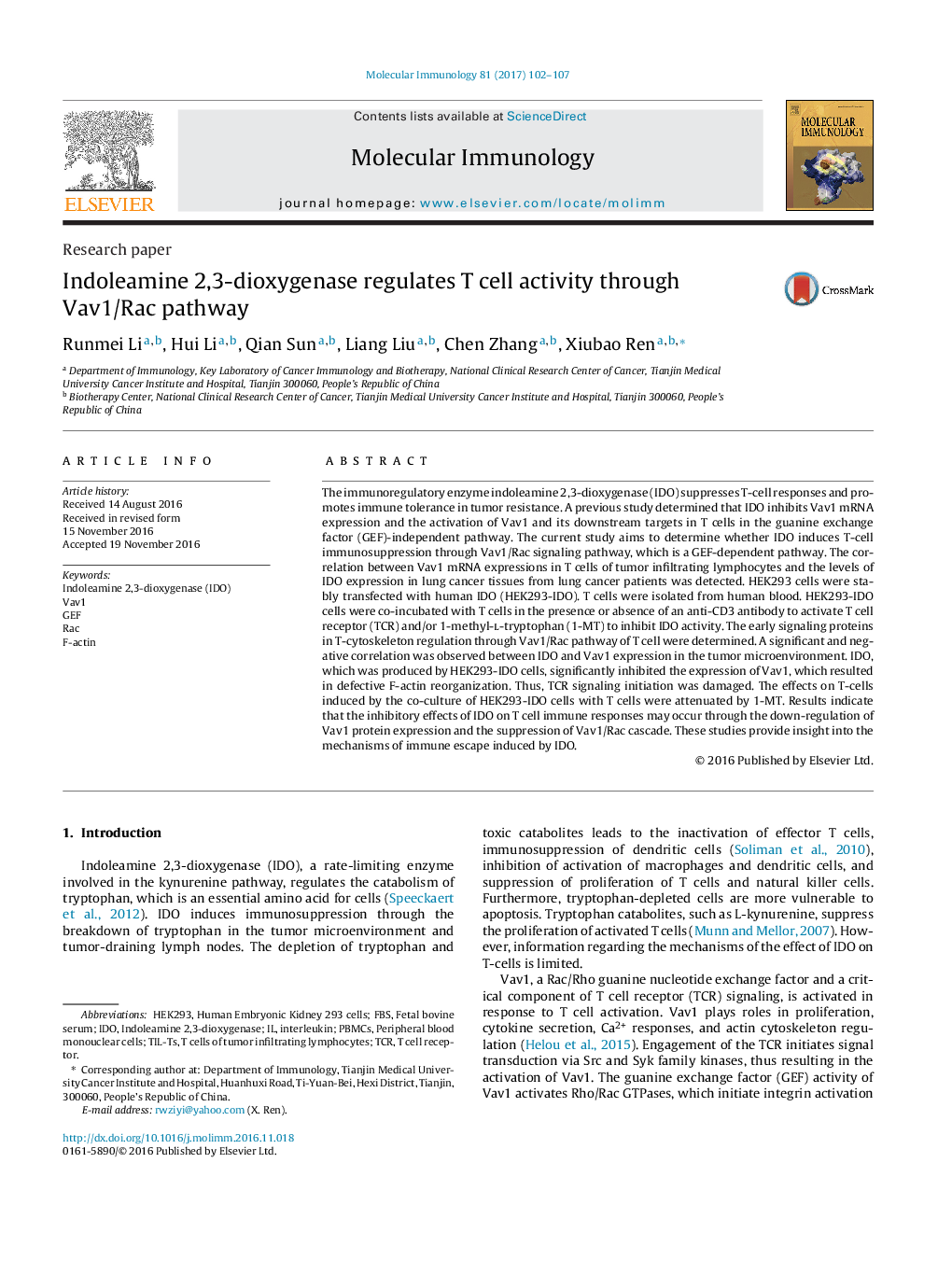| Article ID | Journal | Published Year | Pages | File Type |
|---|---|---|---|---|
| 5592078 | Molecular Immunology | 2017 | 6 Pages |
Abstract
The immunoregulatory enzyme indoleamine 2,3-dioxygenase (IDO) suppresses T-cell responses and promotes immune tolerance in tumor resistance. A previous study determined that IDO inhibits Vav1 mRNA expression and the activation of Vav1 and its downstream targets in T cells in the guanine exchange factor (GEF)-independent pathway. The current study aims to determine whether IDO induces T-cell immunosuppression through Vav1/Rac signaling pathway, which is a GEF-dependent pathway. The correlation between Vav1 mRNA expressions in T cells of tumor infiltrating lymphocytes and the levels of IDO expression in lung cancer tissues from lung cancer patients was detected. HEK293 cells were stably transfected with human IDO (HEK293-IDO). T cells were isolated from human blood. HEK293-IDO cells were co-incubated with T cells in the presence or absence of an anti-CD3 antibody to activate T cell receptor (TCR) and/or 1-methyl-l-tryptophan (1-MT) to inhibit IDO activity. The early signaling proteins in T-cytoskeleton regulation through Vav1/Rac pathway of T cell were determined. A significant and negative correlation was observed between IDO and Vav1 expression in the tumor microenvironment. IDO, which was produced by HEK293-IDO cells, significantly inhibited the expression of Vav1, which resulted in defective F-actin reorganization. Thus, TCR signaling initiation was damaged. The effects on T-cells induced by the co-culture of HEK293-IDO cells with T cells were attenuated by 1-MT. Results indicate that the inhibitory effects of IDO on T cell immune responses may occur through the down-regulation of Vav1 protein expression and the suppression of Vav1/Rac cascade. These studies provide insight into the mechanisms of immune escape induced by IDO.
Keywords
Related Topics
Life Sciences
Biochemistry, Genetics and Molecular Biology
Molecular Biology
Authors
Runmei Li, Hui Li, Qian Sun, Liang Liu, Chen Zhang, Xiubao Ren,
